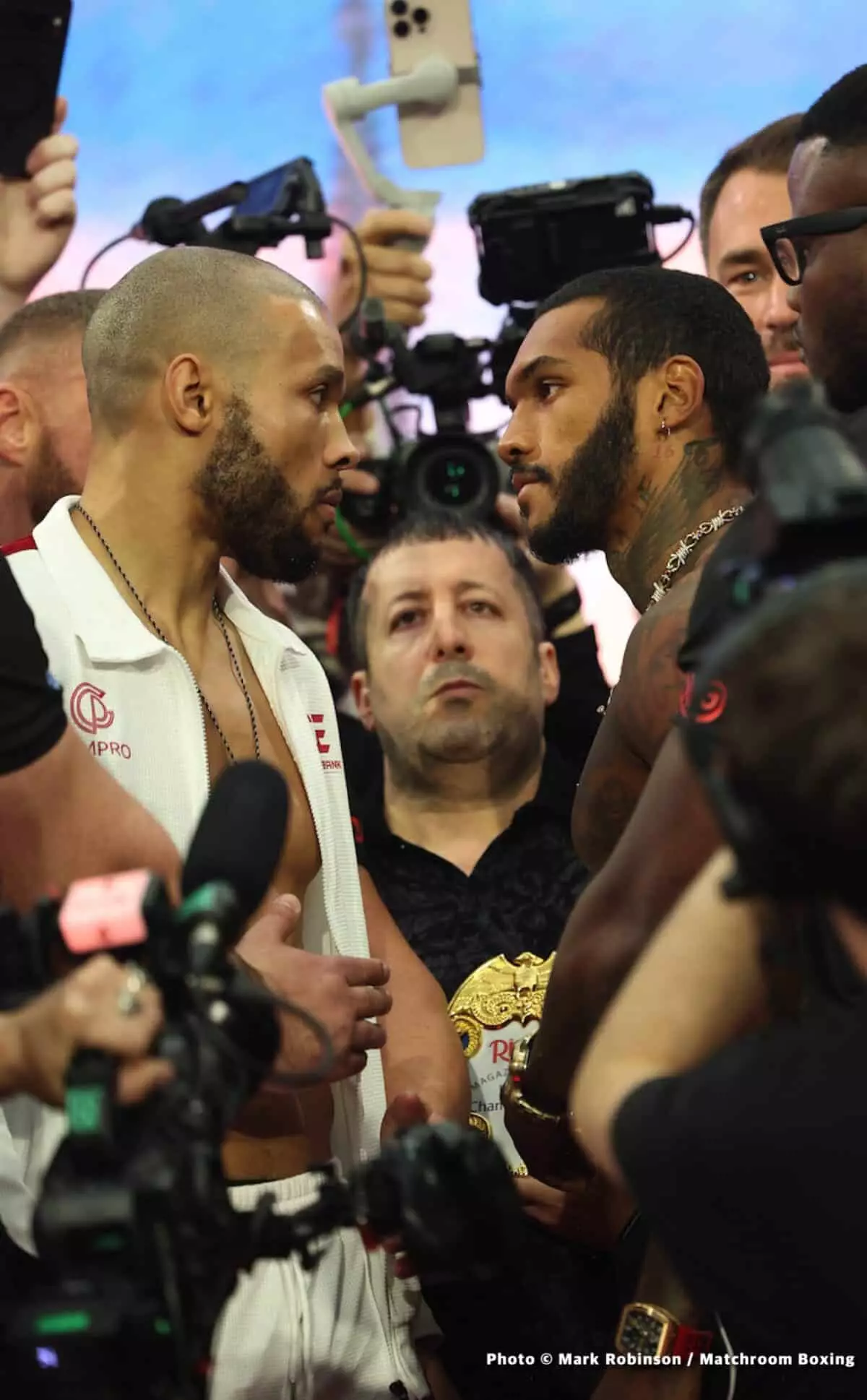In the hyper-competitive world of boxing, maintaining professionalism is crucial—not just for the athlete’s reputation but also for the integrity of the sport. Promoter Eddie Hearn recently took a firm stance against Chris Eubank Jr. for his failure to meet weight at a weigh-in that had amplified tensions between Eubank Jr. and fellow fighter Conor Benn. At the center of this controversy is the family feud hybrid fight scheduled for April 26th at the iconic Tottenham Hotspur Stadium in London. Although Eubank Jr. missed the weight limit by a mere half-ounce, the ramifications of his oversight have stirred significant dialogue within the boxing community.
Hearn emphasized the discrepancy and expressed disappointment, characterizing the misstep as unprofessionalism, particularly for an athlete of Eubank Jr.’s caliber, who holds the IBO championship title. The incident underscores how expectations in professional boxing extend far beyond merely stepping into the ring; they encapsulate reading the moments leading up to a fight just as keenly as one might read an opponent’s strategy inside the ring itself.
What Missing Weight Means for the Fighters
While a half-ounce slip might seem negligible, it comes with dire financial consequences. As a result of Eubank Jr.’s inability to make weight, Benn will receive $500,000 of Eubank’s purse, which raises questions about the financial implications in a sport known for its lucrative offers. Eubank Jr. is set to walk away with a hefty $9.5 million, and with a potential rematch looming, this financial setback may barely create a dent. However, the issue transcends monetary consequences—it emphasizes the responsibilities of professionalism in boxing that champion athletes must uphold, regardless of the purse.
For Benn, this unexpected windfall only marginally raises stakes for him, given that his career till now has seen limited success against formidable opponents. Widespread sentiment casts doubt on Benn’s abilities outside the shadow of his father, former champion Nigel Benn. Eubank Jr.’s missed weight may serve as a significant talking point for fans questioning Benn’s legitimacy as a boxer.
The Promotional Theater: A Strategic Play by Hearn?
Eddie Hearn’s public condemnation of Eubank’s weight miss also raises questions about promotional theatrics. Hearn, undoubtedly familiar with the art of spectacle, was quick to frame the weigh-in as one of the most dramatic moments he’d ever witnessed. By ramping up tension and creating a narrative around the mishap, Hearn aims to capture audience attention and drive pay-per-view sales for what could otherwise be considered a lackluster matchup.
From the outside, it seems like a promotional game designed to inflate the fight’s anticipation. His remarks regarding Eubank Jr.’s late arrival and alleged lack of preparation appear to leverage hype in a fight that many in the boxing community have deemed not worthy of the headline spotlight. By painting the situation as critical, Hearn effectively distracts from the actual martial sports engagement, turning a misjudgment into a sensational talking point that feeds into the entertainment aspect of boxing.
The Broader Implications for Boxing Culture
The incident delineates a concerning trend that has emerged in boxing culture: the blurred lines between entertainment and athletic integrity. When misweighing becomes an opportunity for hype rather than a sobering reminder of the responsibilities athletes carry, it risks trivializing the sport’s seriousness. Eubank Jr.’s situation depicts a microcosm of this cultural shift, where overlooking professionalism might be more readily forgiven when weighed against marketable drama.
However, the juxtaposition poses a valid argument: should legacy and professionalism be overshadowed by monetary aspirations and promotional theatrics? The question lingers about whether boxing, as an esteemed sport with historical significance, can maintain its dignity in an age where spectacle is often prioritized over genuine athletic achievement.
Eubank Jr.’s weight misstep therefore serves as an important lesson, not just for him but for the younger fighters observing the landscape. They must learn to navigate their careers with an understanding of the gravity that each decision carries—because ultimately, there’s more at stake in the boxing ring than just money and marketing.

